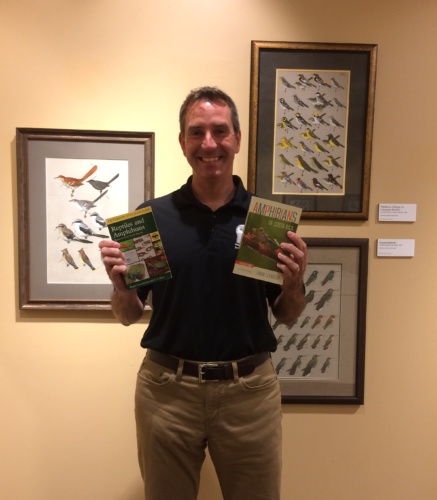Twan Leenders, president of the Roger Tory Peterson Institute of Natural History (RTPI) and a conservation biologist with 25 years of experience working with endangered amphibians and reptiles will be the opening speaker of the 41st annual International Herpetological Symposium (IHS), which is held from June 20-23 at the Houston Zoo in Houston, Texas. “Some level of environmental awareness is everybody’s responsibility; this symposium will be a great gathering of the minds and we are all committed to finding ways to communicate our collective knowledge to other scientists, naturalists, and the general public,” stated Leenders. 
The mission of the IHS is to provide a forum for the dissemination of information and results of research pertaining to the natural history, conservation biology, and captive management and propagation of amphibians and reptiles. The purpose of the IHS is twofold; to provide a yearly symposium for the dissemination of information and research pertaining to the natural history, conservation biology, captive management, and propagation of amphibians and reptiles, and the publication of such information, which is made available, for free, on the HIS website.
Since the early 1990s, Leenders has been studying amphibian populations throughout Central America. Many have seen dramatic declines since then, and some are gradually showing signs of recovery. He will discuss his experiences with local extinctions, and a few recoveries, of amphibian populations in Nicaragua, El Salvador, Costa Rica, and Panama over the past 25 years, and reflect on how these dramatic changes in biodiversity spurred the creation of his recent book Amphibians of Costa Rica – a Field Guide (Cornell University Press, 2017). Leenders understands the importance of creating resources that educate the general public about nature, and developing tools to allow the general public to become citizen scientists whose observations can support research and conservation efforts. Of his work, Leenders stated, “I feel compelled to share my knowledge of the natural world in any way possible. Through these field guides, many people with an interest in nature can now enjoy their walk in the woods armed with all this information in their pocket – it’s the next best thing to being able to join everyone in person.” He is currently finishing up work on a field guide to the reptiles of Costa Rica, due out by early 2019, also by Cornell University Press.












